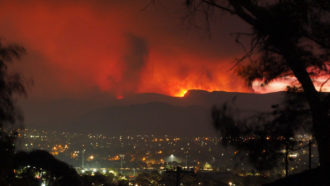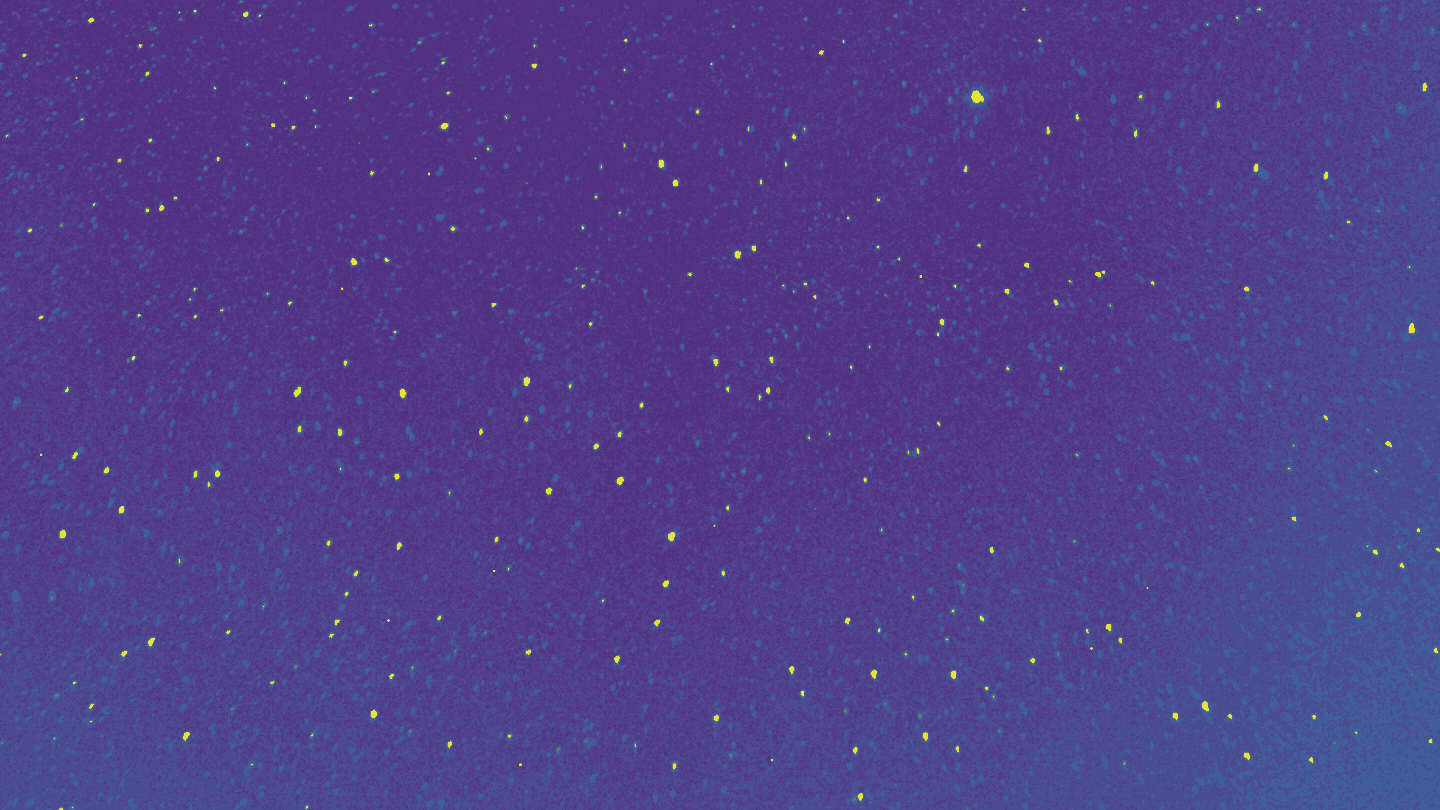Earth
-
 Earth
EarthSurprise! The jet stream can trigger cloud formation
Most cloud-seeding particles may come from a newly discovered mechanism — stratospheric intrusion.
-
 Earth
EarthMeet the sneaky and surprisingly dangerous squall-line tornado
These destructive, radar-dodging twisters often form at night. Emerging data from the U.S. Southeast might soon make forecasting the tornadoes possible.
By Nikk Ogasa -
 Animals
AnimalsThis biologist tracks seadragons, with help from the public
Nerida Wilson uses artificial intelligence to identify seadragons in photos taken by citizen scientists.
-
 Climate
ClimateLet’s learn about how much climate change is to blame for extreme weather
Scientists can find out whether a natural disaster was more frequent or severe due to human-caused climate change. Here’s how.
-
 Earth
EarthAs Yellowstone’s supervolcano slumbers, another big danger lurks
Superheated water beneath Yellowstone could fuel hydrothermal explosions with the force of an atomic bomb. And lessons from the past suggest they could happen today.
By Douglas Fox -
 Tech
TechNew system uses evaporation to greatly cool artificial turf
It relies on rainwater that gets stored below a field of plastic "grass." The design also limits how much rain — and pollution — will run off artificial turf.
By Laura Allen -
 Space
SpaceHere’s why some shooting stars have long-lasting afterglows
Atmospheric chemistry is the most important factor in determining which meteors leave behind these persistent trails.
-
 Space
SpaceSummer ‘space hurricanes’ are emerging high above Earth’s magnetic poles
A separation — and later recombining — of Earth’s magnetic field lines may be what churns up these super-high-altitude storms of plasma.
-
 Climate
ClimateStashing more CO2 in the ocean could slow climate change
More research is needed on ways to safely remove some CO2 from the water to make room for more — such as by seaweed farming and iron fertilization.
-
 Earth
EarthSuperman’s kryptonite doesn’t have a true equal on Earth
Though not quite kryptonite, some Earth minerals can glow under ultraviolet light. Excited electrons cause these real-life power stones to light up.
-
 Tech
TechLasers help put the cork on spilled oil
Treating cork with lasers made the material able to quickly sponge up oil while repelling water, scientists in China and Israel found.
-
 Earth
EarthHawaii’s Kilauea volcano recently erupted like a stomp rocket
This appears to be a newfound type of eruption. It could only be recognized because of the extensive monitoring of Kilauea's crater.